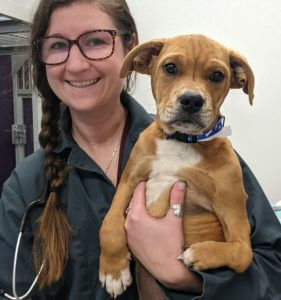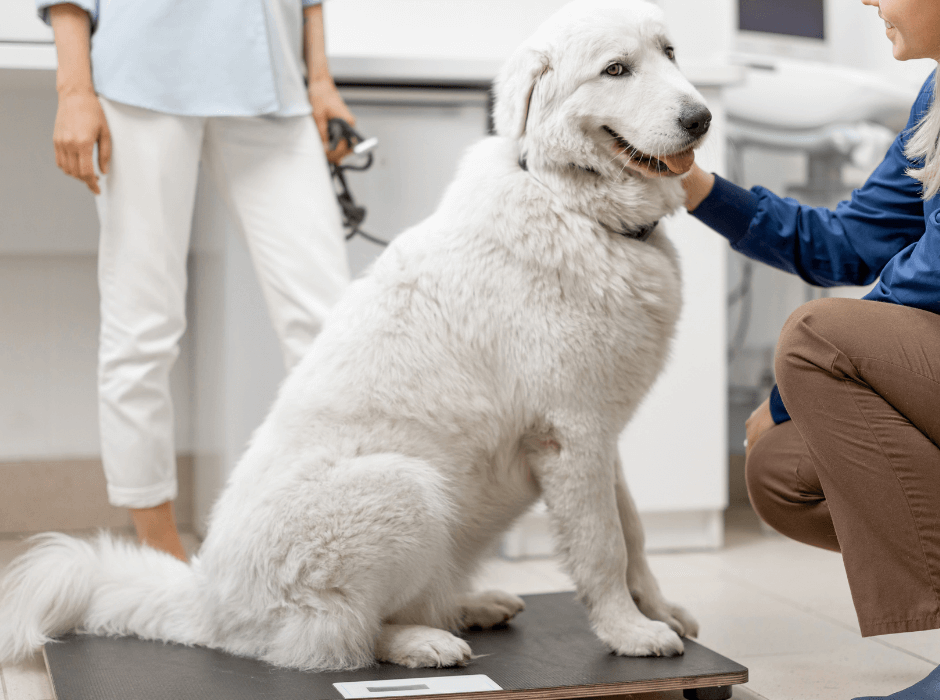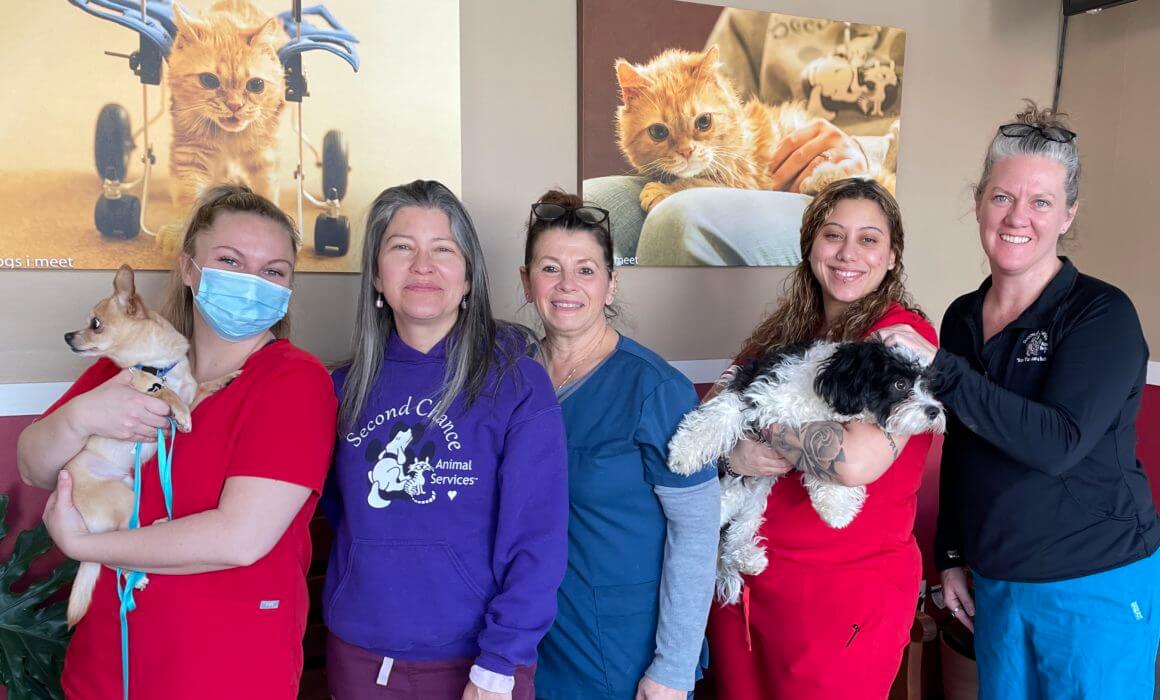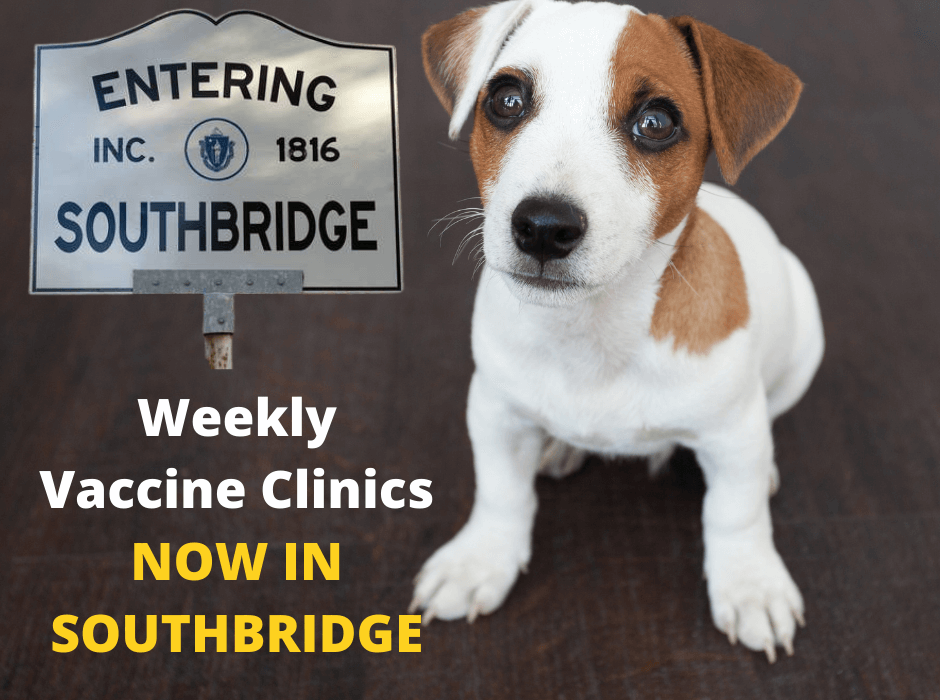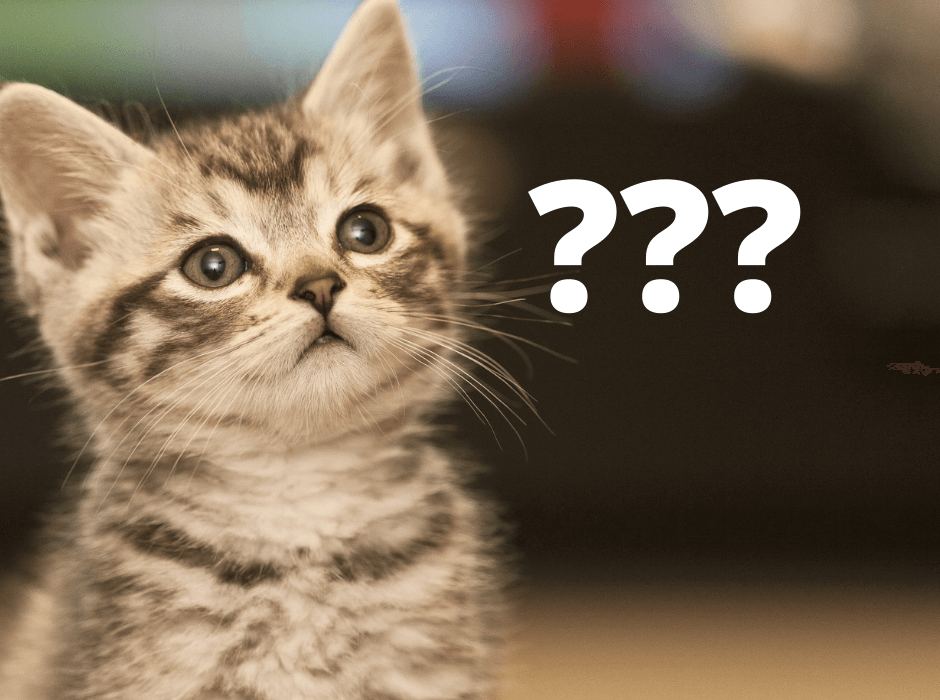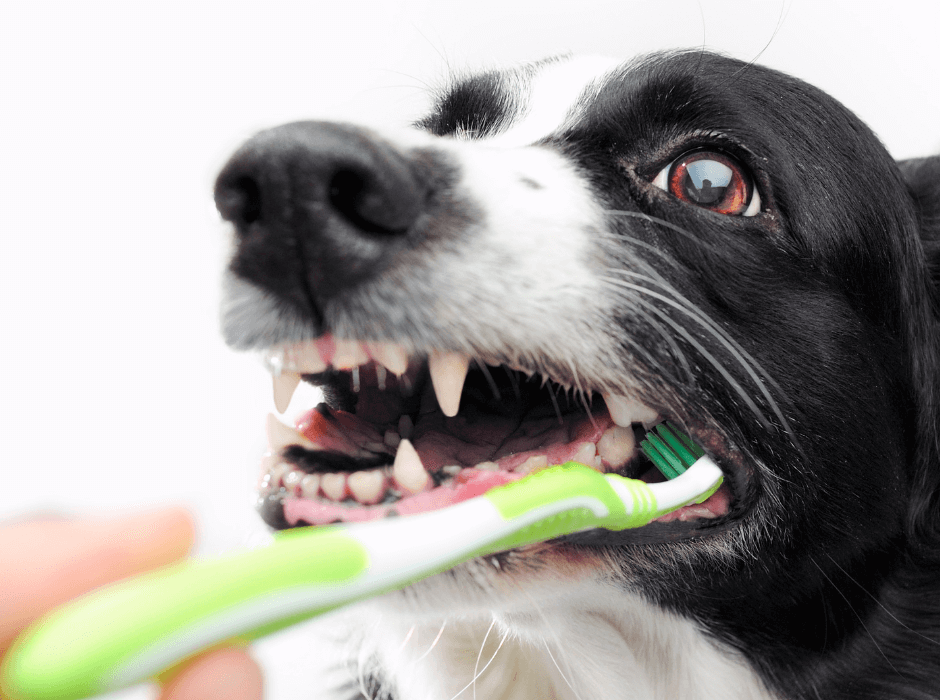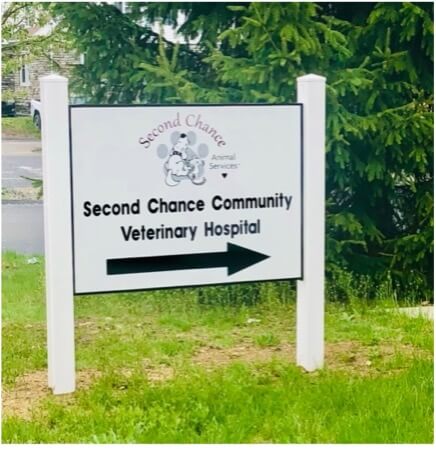Best of Central Mass
Last night we were humbled to be named Best Veterinary Clinic in the 2022 Best of Central Mass contest. We are so very proud of all our Community Veterinary Hospital employees who give their all for pets everyday and we’re grateful to everyone who voted for us.


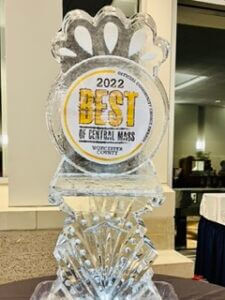

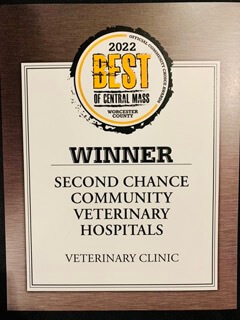
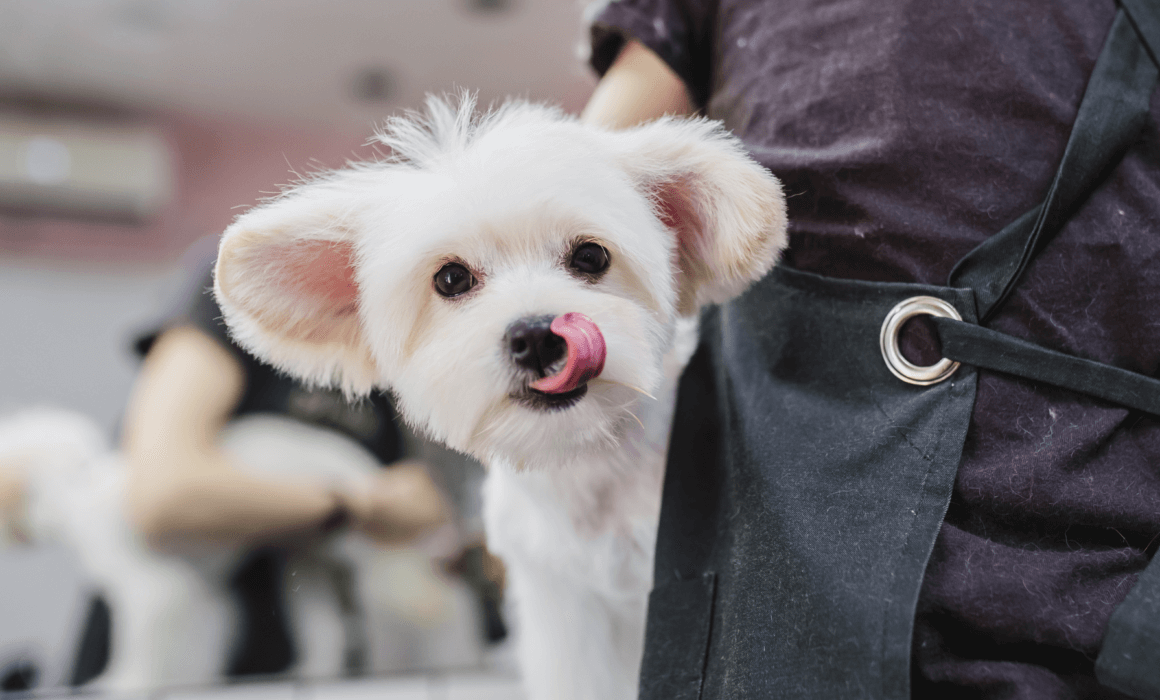
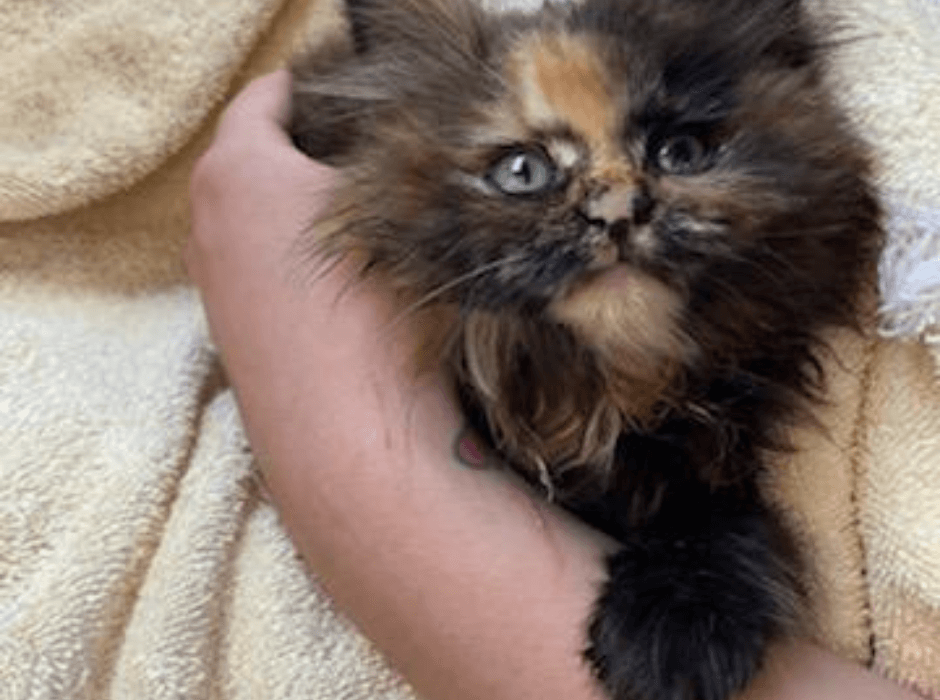
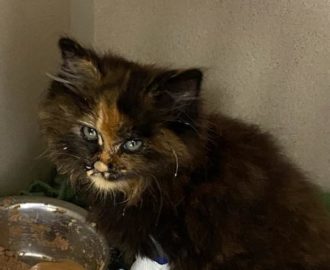 Mazeikeen was approximately 6 weeks old when she was found by a Good Samaritan in a cardboard box next to a dumpster. Her rescuer brought the sweet baby kitten to Second Chance Animals Services for help. When she arrived at Second Chance, she was cold, dehydrated, and listless. She was having seizure-like episodes due to severely low blood sugar.
Mazeikeen was approximately 6 weeks old when she was found by a Good Samaritan in a cardboard box next to a dumpster. Her rescuer brought the sweet baby kitten to Second Chance Animals Services for help. When she arrived at Second Chance, she was cold, dehydrated, and listless. She was having seizure-like episodes due to severely low blood sugar.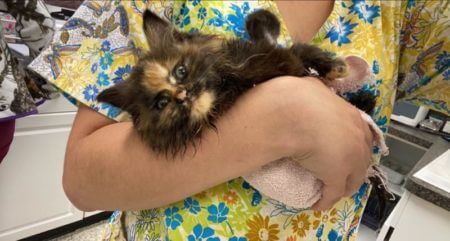 Loving technicians even took her home overnight to ensure that there was never a moment that she was left alone and without care. After three and a half days of supportive around the clock care, this little girl’s body just could not fight any more. The worms left her very sick despite all our efforts. In the end the Second Chance team had to say goodbye to this girl that they poured their hearts into over the last few days.
Loving technicians even took her home overnight to ensure that there was never a moment that she was left alone and without care. After three and a half days of supportive around the clock care, this little girl’s body just could not fight any more. The worms left her very sick despite all our efforts. In the end the Second Chance team had to say goodbye to this girl that they poured their hearts into over the last few days.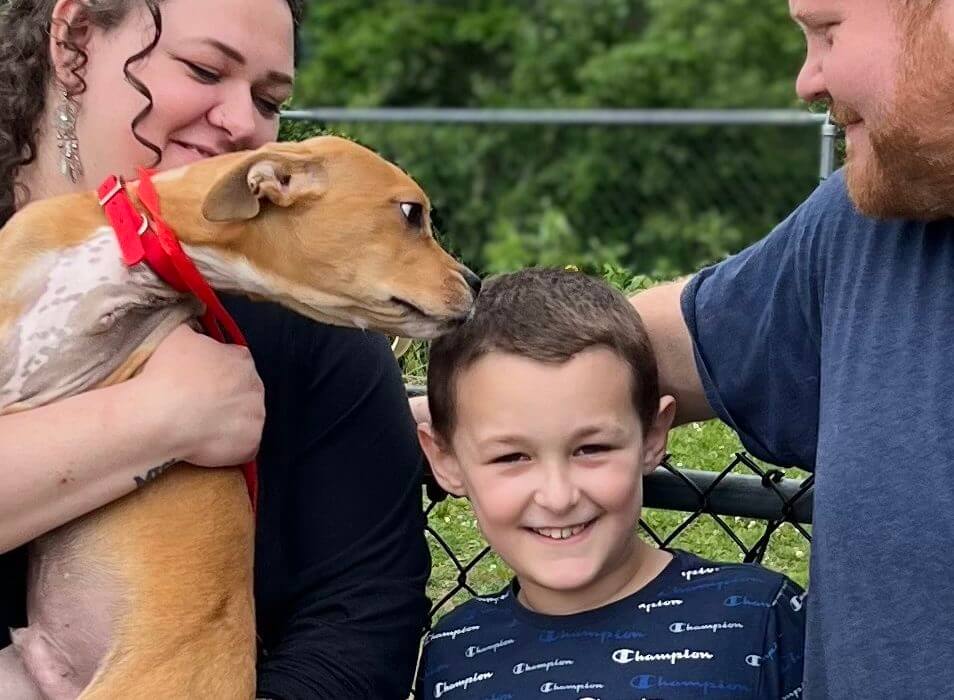
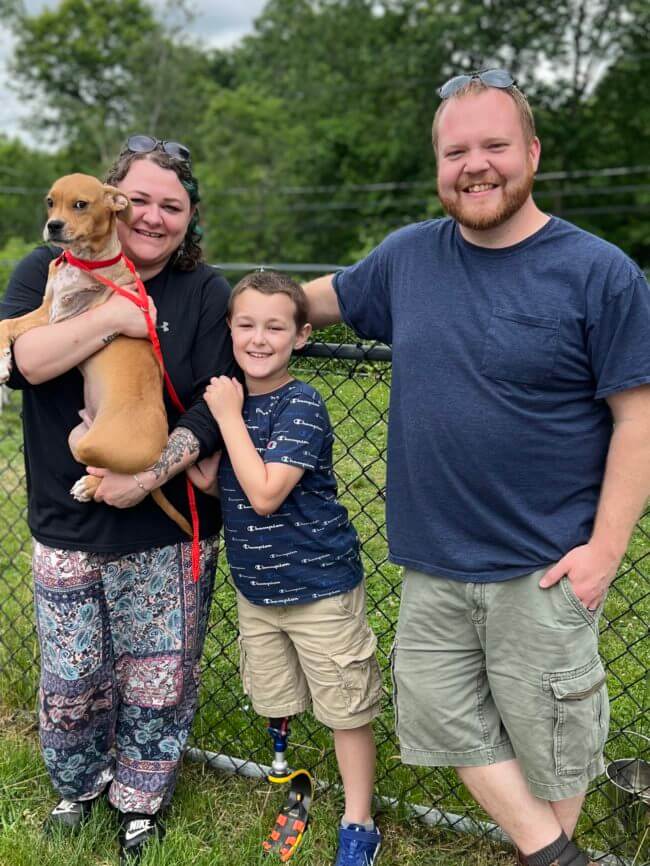 A shelter dog who had amputation surgery for a birth defect has found a forever home with an eight-year-old boy who can relate.
A shelter dog who had amputation surgery for a birth defect has found a forever home with an eight-year-old boy who can relate.